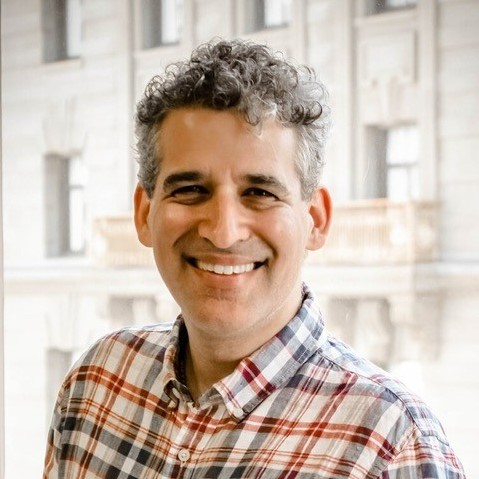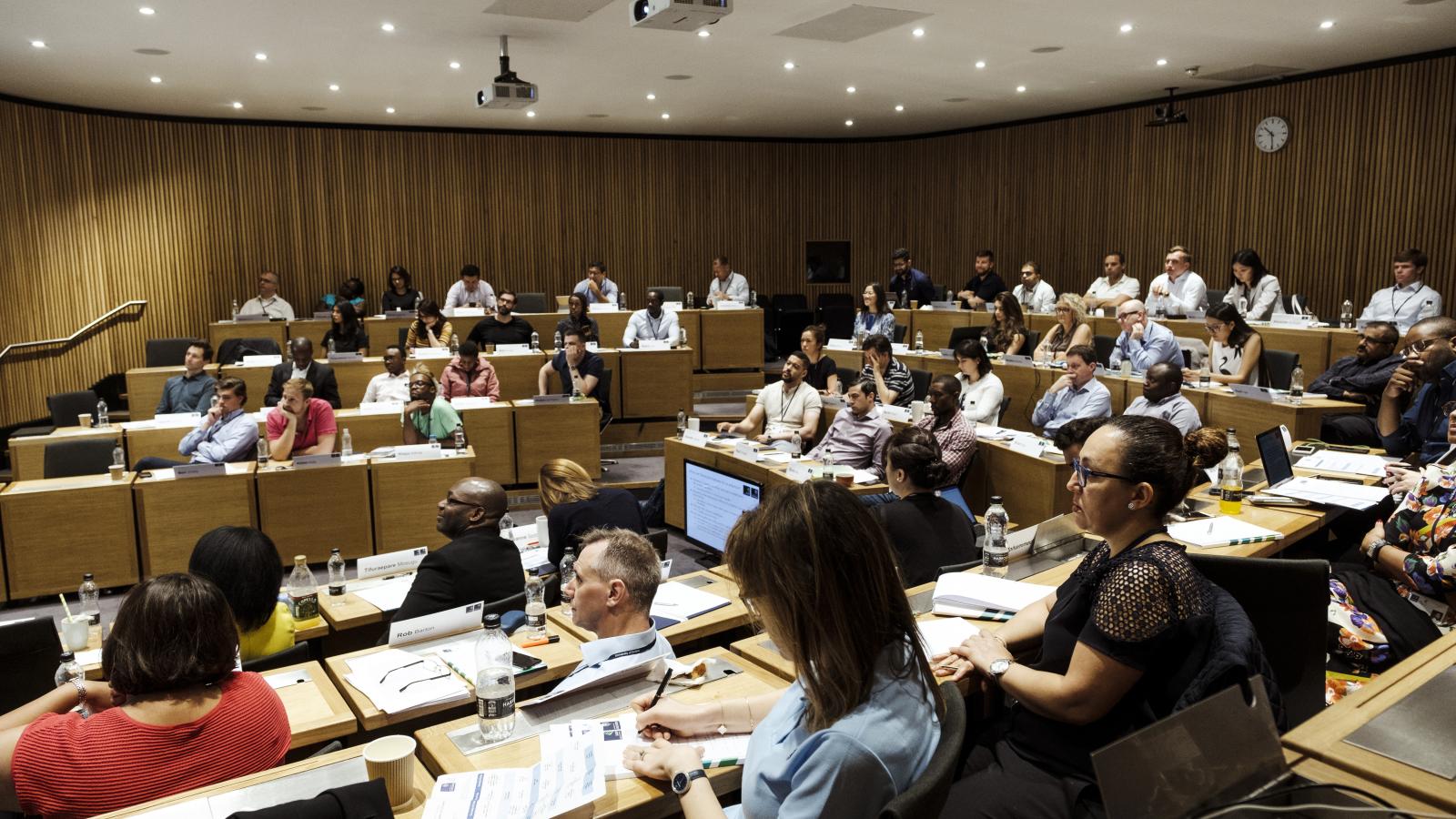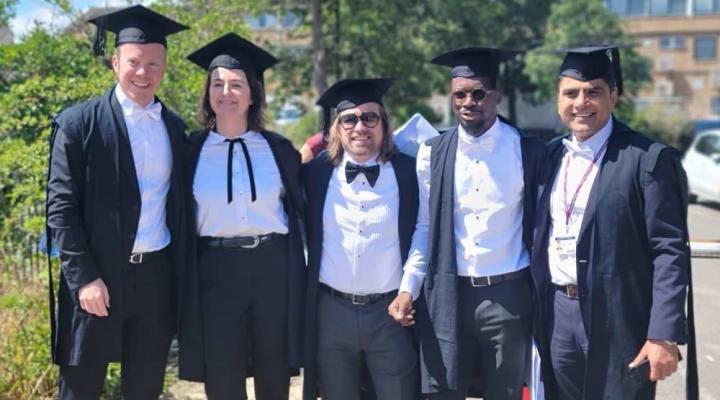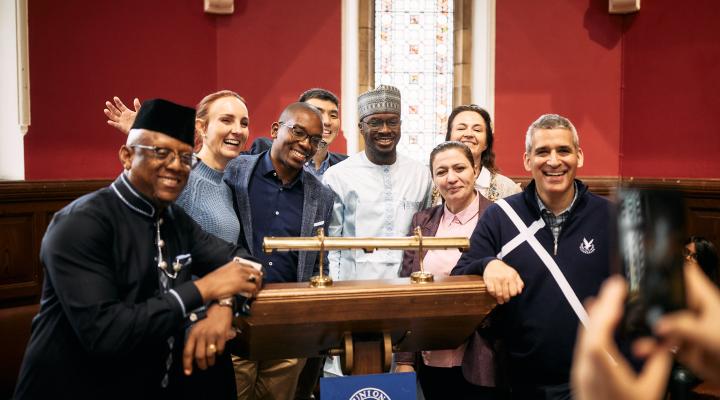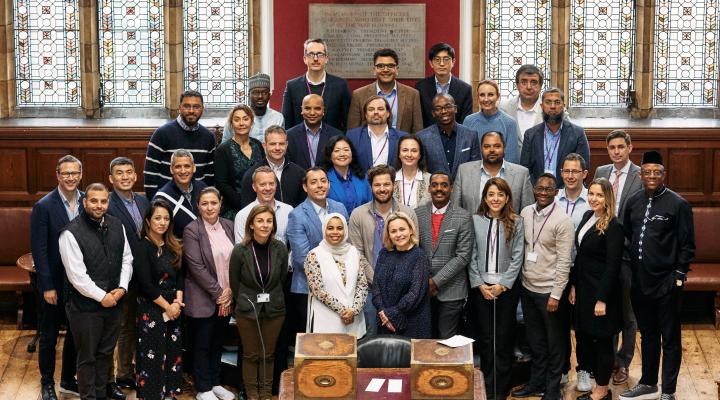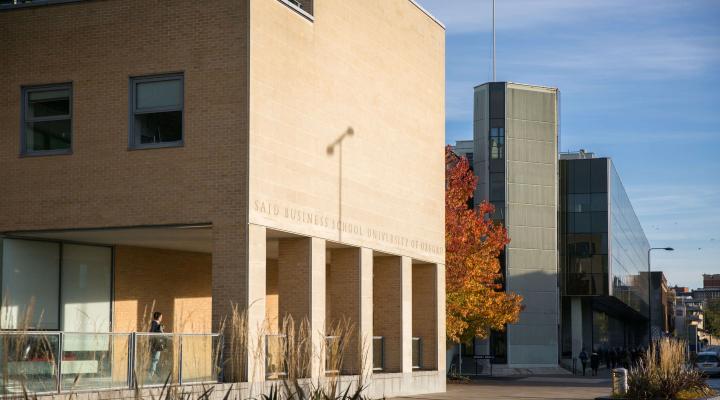As a lawyer with a background in public health, I travelled an unconventional path to the Postgraduate Diploma in Financial Strategy at Saïd Business School.
My professional career started in the traditional practice of law with a focus on impact litigation. My practice grew over time to include business advisory services tailored to investors and early-stage health and medical technology start-ups. Soon thereafter, I made a side bet on venture capital and began to make my own investments in seed-stage companies in the health and medical sectors. Ultimately, this new-found focus on business advisory services and venture investments led me to apply to the Diploma in Financial Strategy programme.
After completing the first module in the Financial Strategy programme, I began researching law and technology in anticipation of our first exam. It quickly became apparent that scholars at the University of Oxford and Saïd Business School were the leading international contributors to the academic research in the field of law technology. These scholars include professors Richard Susskind OBE (Oxford Internet Institute), Mari Sako (Saïd Business School), and John Armour (Faculty of Law). At first glance, Professor Susskind immediately stood out to me. Two of his books – ‘The End of Lawyers?’ and ‘Tomorrow’s Lawyers’ – were very familiar to me. In fact, these books were highly influential in my decision to explore a non-traditional law practice, which in turn led me to study at Oxford.
This experience has led me to reflect on the impact that the University of Oxford has already had on my career path and, more importantly, Oxford’s impact on the future of the practice of law.
Oxford’s impact on my career path
My initial exposure to the role of technology in reshaping the practice of law was in 2014 when I read ‘The End of Lawyers?’ and ‘Tomorrow’s Lawyers.’ Both books are international bestsellers regarding law technology and remain widely read and highly influential within the legal industry. Professor Susskind has warned for years that automation and technology will replace the traditional practice of law. As he has more recently stated, lawyers and other professionals will soon go the way of blacksmiths and will be displaced by more capable machines.
By the time I read Professor Susskind’s books, many of the existential threats to traditional lawyers were already taking shape. I could see larger corporations using technology to replace larger law firms with smaller inhouse legal departments. And sadly, consumers and small businesses, priced out by the legal industry, were increasingly reliant on online document providers for canned legal forms. It was apparent to me that my practice (and in fact the traditional practice of law) was not sustainable in the long-term.
As a result, I decided to transition from a traditional practice of law to a non-traditional practice that operated at the cross-section of law, business, and public health. This transition was accompanied by a three-fold transformational change to my practice. First, I have embraced technology. Second, I have transitioned from a brick-and-mortar office to a virtual model. And third, I have adopted low-cost and alternative compensation structures. The transformation of my practice also paved the way to a side-bet on health and medical technology venture capital and my work today is unlike what most would consider to be the practice of law!
Oxford’s impact on the future of the legal profession
As part of my studies for the Financial Strategy programme, I decided to research the role of technology on the future of the practice of law. I am specifically interested in the role of technology in creating platforms (an App Store for lawyers) connecting start-ups and emerging companies to lawyers. I was delighted to find out that an interdisciplinary team of researchers at Oxford University are leading the charge in this area.
Notably, an interdisciplinary team of researchers from the Oxford departments and faculties of Law, Economics, Computer Science, Education and the Saïd Business School recently published their findings from a multi-year researched project on Unlocking the Potential of Artificial Intelligence for English Law. The project was led by Professors Mari Sako and John Armour . It has resulted in a multiple peer-reviewed article touching on AI’s impact on nearly every aspect of the practice of law. Professor Sako and Armour’s research provides a roadmap for the use of technology in levelling the playing field in legal services and the creation of next-generation law companies that can serve as a market place (App Store) connecting lawyers and innovative businesses.
As I look to the future, I believe that Oxford’s ‘Unlocking the Potential of Artificial Intelligence for English Law’ project will have a far-reaching impact on the practice of law around the world. Oxford’s contribution to scholarship regarding legal technology gives me hope for the future of the legal profession and for the future generations of lawyers yet-to-come.
